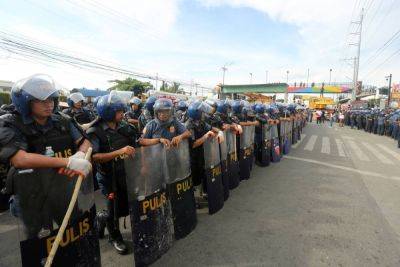Scientists probing E. coli in urban farm produce
SCIENTISTS from the University of the Philippines-Diliman College of Science (UPD-CS), supported by the Department of Agriculture-Bureau of Agricultural Research (DA-BAR), are investigating the levels of Escherichia coli (E. coli) in vegetables grown in urban areas, which could help those engaged in urban agriculture improve their produce.
This, as a type of bacterium called Escherichia coli (E. coli), found in the feces of humans and animals, is often released into bodies of water such as streams. Although most E. coli strains are harmless, some can cause foodborne diseases such as gastroenteritis, typhoid fever and dysentery. Feces are a major source of microbial contamination in fresh produce. With the rise of urban farming in the Philippines during the Covid-19 pandemic, it is essential to monitor fresh produce from urban farms to recognize and address food safety issues immediately.
Pierangeli Vital, Donnabel Sena, Czarina Jay Catapat and Ma. Christine Jasmine Sabio from the UPD-CS Natural Sciences Research Institute, along with Windell Rivera of the UPD-CS Institute of Biology, gathered 419 vegetable samples from three urban farms and four major wet markets in Metro Manila. The group detected E. coli in 13.60 percent of all the samples. The presence of E.coli in the samples from urban farms was also higher than in the samples obtained from wet markets.
Vital said that high levels of E. coli in the samples from urban farms could be linked to various factors, such as lack of thorough postharvest processing, unlike the samples from wet markets. «As observed in the urban farm sampling sites, they frequently use rainwater, pond water and well water for irrigation, mainly for economic reasons, but this increases the risk of bacterial contamination,» she said.
Animals such as dogs, cats and chickens often roam around urban farms, which raises the risk of microbial contamination in the irrigation water and soil where the vegetables grow. The researchers considered these as areas for improvement in developing urban farming practices.
«This research, together with our past research on agricultural food safety, is and was used in creating and adopting Philippine







